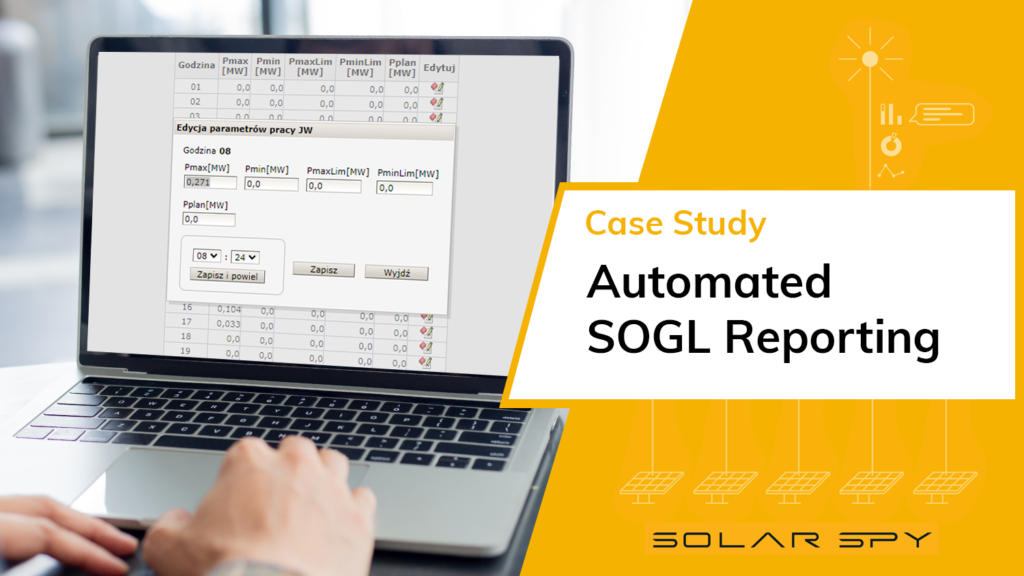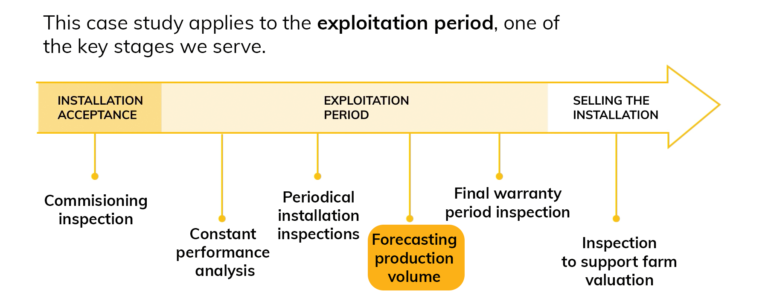Fully Automated SOGL Energy Production Forecasts

Case Overview
A team responsible for managing three 1MW photovoltaic installations was looking for a solution to help with their reporting workload. Since 2021, following the URE (Polish Energy Regulatory Office) regulations, energy producers in Poland are required to provide production forecasts and summary reports. What is more, the forecast data must be sent to the operators daily (no matter if it is the weekend or a national holiday) with calculations for the next 10 days.
Therefore, to fulfill the requirements and to submit the reports by 9:00 am, the team was forced to work over hours. Every day they performed the tedious computations manually. Still, with all the efforts in place, the investor’s concerns grew. It was unclear if the quality of the data was sufficient to avoid penalties in the future.

Solar Spy’s AI-Driven Thermal Drone Inspection Analytics Platform
Case Facts
Three 1 MW solar installations
Sites operating for more than 4 years
Automated SOGL solution set-up in 3 days
Solution
Following an expert consultation, Solar Spy set up the platform according to the client’s needs. Fast and efficient connection with the network operator allowed for quick system implementation – all in accordance with the Polish SOGL (system operation guidelines). Complicated and time-consuming procedures have been eliminated.
The system now provides high-quality energy production forecasts – automatically and independently. Reliable data is sent on time to the DNO (Distribution Network Operator) each and every day before 9:00 am.
Benefits
Fully automated and reliable SOGL reporting system that works 24/7/365 replaced slow, manual, error-prone processes.
Reliable energy production forecast reports are delivered on time and in line with current regulations and Polish legal requirements.
The team now has more time for other tasks and is certain that all formal obligations are fulfilled.
The investor is more calm as he doesn’t need to worry if the data will be sent on time, if the data is accurate, or to check if the responsible employees are at work to complete the required tasks.


